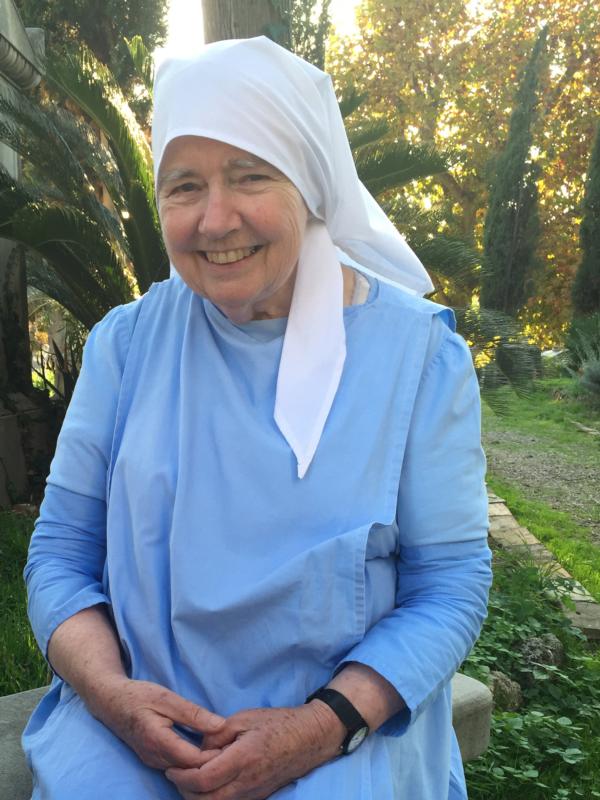
The newspaper Catholic Philly reports on Julia Bolton Holloway, 78, a Catholic, a Dante scholar with a doctorate in medieval studies, and a resident of Florence, Italy. She works as a groundskeeper in a cemetery — and assists Roma (gypsy) families in seeking social assistance and especially in offering them English language instuction. She calls herself an “urban hermit” who is “freelancing” the religious life in her contemplative solitude, while pursuing a busy life.
Holloway, who is a writer, carpenter, seamstress, cultural critic, religious website designer and great-grandmother, said the eremitical life enables her to focus on her many projects. One of those is lobbying local authorities and international courts to allow Roma families to work and retain custody of their children, who are often taken from them by Italian social services.
Holloway was particularly influenced by the medieval mystic Julian of Norwich, who combined an active life with reflective eremitism.
“The eremitical life is an excellent mode of life to be a writer, because what you do is you reduce all the false stimuli. There’s no television, you’re just not interested in consumerism,” she explained.
“With writing you transcend time. It’s a conversation you have listening to (Sts.) Augustine and Monica. … You arrive at that silence, which is the like the silence of a Quaker meeting, where the Spirit speaks,” she said.
Being a hermit is a liberating lifestyle, Holloway said.
“If you are doing it from the spiritual base, from the base of prayer and contemplation, somehow it takes off, it has its own energy,” she said, “it doesn’t come from me.”
URL: http://catholicphilly.com/2015/11/news/world-news/freelancing-the-religious-life-an-urban-hermit-tells-her-story/


